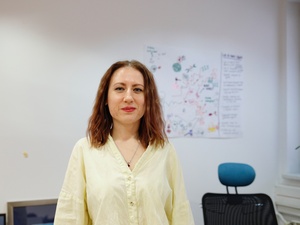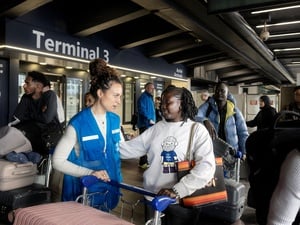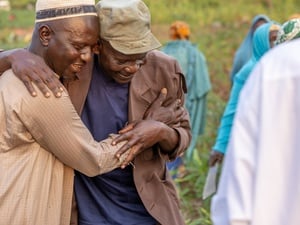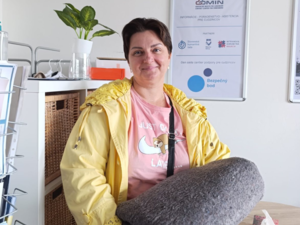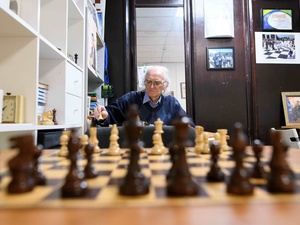Refugees find safety in Armenia, but the future remains uncertain
Refugees find safety in Armenia, but the future remains uncertain

Mariam and Karine (centre) surrounded by the rest of their family in their mother-in-law's home in Armenia.
At Karine’s house on the outskirts of town, her close friend and sister-in-law, Mariam, was decorating the house and laying the table for a celebration to welcome the newest member of their family. With her were her husband Hrach and their two children, and her brother-in-law, – Karine's husband – Artyom.
But the joyful homecoming never happened. Messages began to circulate telling people to take cover. At the hospital, doctors told Karine and other mothers on the ward to head down to the basement with their newborns.
“At that moment, the main fear I had was that my son was in kindergarten,” Karine said. “I was thinking: ‘Where will he be … what will happen to him?’.”
While Artyom rushed to the kindergarten to find their young son and bring him to the hospital, Mariam and her family rushed home and took shelter in their basement. “We just left everything … and ran away; we didn’t finish decorating the room. We just managed to grab our documents from home and run down to the basement,” Mariam said.
With communications down, the whole family chose to reunite at the hospital and spent two anxious nights sheltering underground. Finally, fearing for their safety, they took the difficult decision to leave their hometown and head for the border with Armenia. With the roads jammed with families trying to escape, what was usually a three-hour journey took them more than 40 hours.
It was only when they finally crossed into Armenia early on 25 September at the village of Kornidzor, exhausted and hungry, that the reality of their situation hit Karine. “I will never forget the moment when we reached Kornidzor. I always saw it in the movies where people in extremely difficult situations ... are approached by aid workers, cars, rescue services. I would have never thought that I would also be approached by aid workers saying ‘how can I help you?’.”
Karine and her family were among more than 100,000 refugees who entered Armenia from Karabakh in the space of a week at the end of September. Many arrived traumatised, exhausted and hungry, and in urgent need of psychosocial support and emergency assistance. Some 30 per cent of the refugees are children, along with many women and older people.
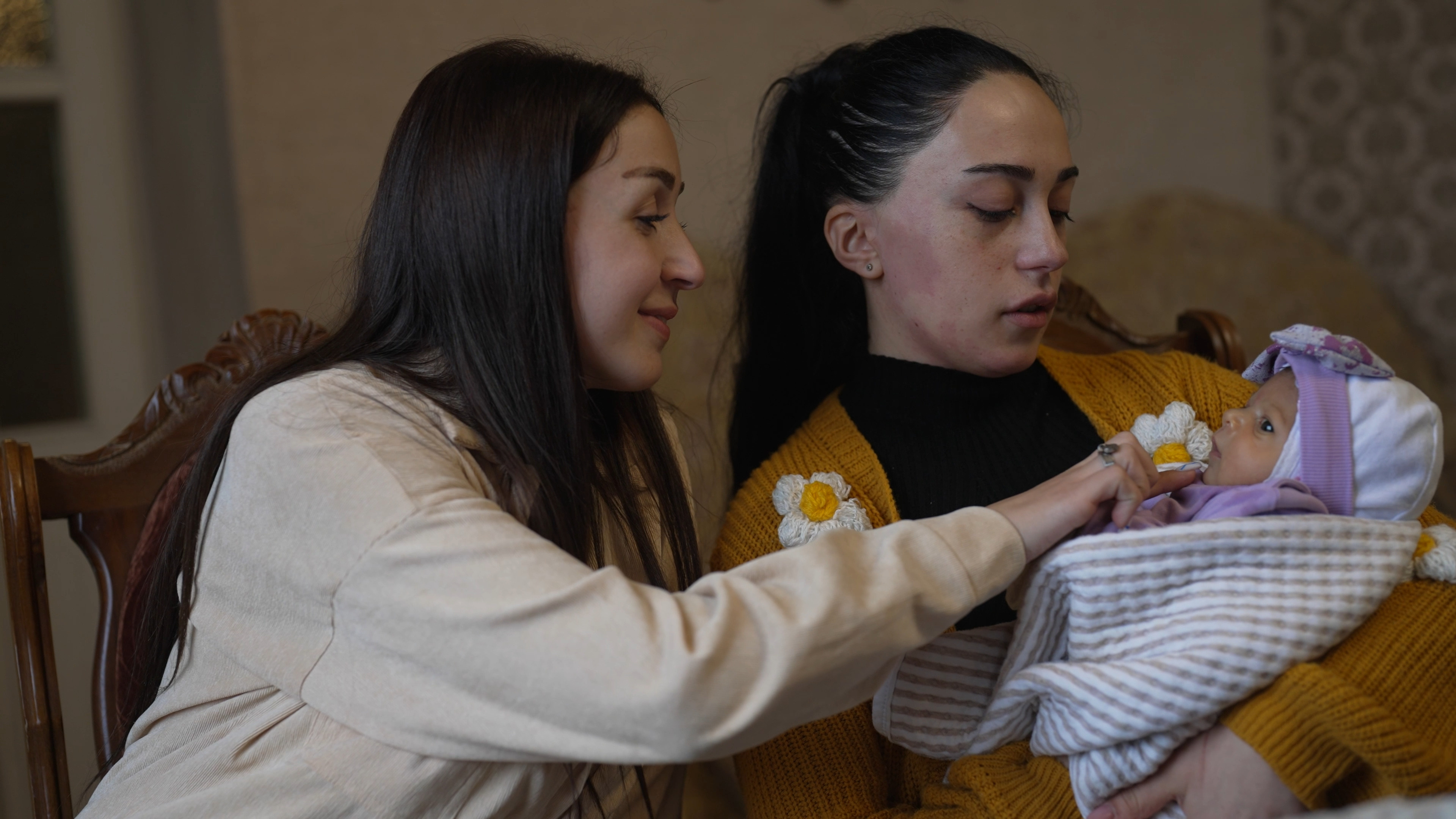
Karine holds her newborn baby next to her sister-in-law Mariam.
Teams from UNHCR, the UN Refugee Agency, have been on the ground at the border in Armenia since day one, providing assistance in support of the Government-led response. The agency has provided technical equipment to help the authorities register new arrivals and assess the needs of refugee families.
UNHCR is working around the clock and, together with its partner Mission Armenia NGO, is distributing foldable beds and mattresses, warm blankets and pillows, linen, hygiene items, kitchen sets and other essentials to refugee families. Many new arrivals are being hosted in remote border communities and face the added challenge of coping with harsh early winter conditions. The agency and its UN and NGO partners have appealed for $97 million to respond to the urgent needs of refugees in Armenia.
While some refugees are living in hotels, hostels, schools and other temporary shelters, Karine and her relatives are among those now staying with family and friends in Armenia. Fifteen members of the extended family have crammed into the two-bedroom house of Hrach’s and Artyom’s parents in Vardenis in the Gegharkunik province of Armenia, a rural town set amid plains surrounded by mountains to the north and east and Lake Sevan to the west.
The brothers’ mother Romella described the desperation she felt when she lost contact with her children and their families for several days. “It was a horrible feeling. I was crying all the time, praying for news. I cannot describe the feeling of relief when I learnt my children had arrived safely.”
That sense of relief outweighs any potential misgivings about having so many relatives under one roof. “On the contrary, I feel bliss, happiness. When the children were away, we were feeling lonely and the house felt empty to us. Now that everyone is here, and we are together, the house is full. I am so happy and gratified. Believe me, I do not have any concerns, nothing bothers me now.”
"We cannot live here like this for long."
But Karine and her young family are still deeply affected by their experience, like many refugees in Armenia whose lives have been uprooted. “The most touching thing is that my son wakes up every morning at 5 a.m. saying: ‘You will not take me to the kindergarten, no? I don’t want to go to the kindergarten.’ He is still afraid and does not want to go to kindergarten, as he was left alone there when all this happened.”
For Hrach, the current situation is only a temporary stopgap, but the future remains uncertain. He and his wife Mariam own a small house near the capital Yerevan, but it is only half finished and they cannot afford to complete the renovation work on top of the cost of the mortgage.
“We cannot live here like this for long,” he said. “This is our priority now. The most important thing for me at this stage is to have a place to live, and from that point, we can start a new life: to find a job, enrol the children in school and kindergarten. [But] we need to have a home to begin our lives again and raise our children.”



